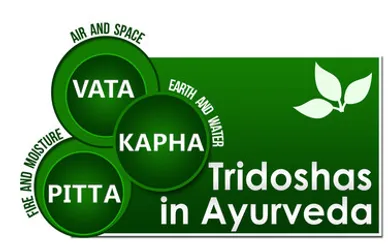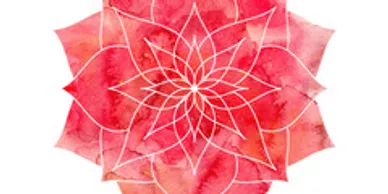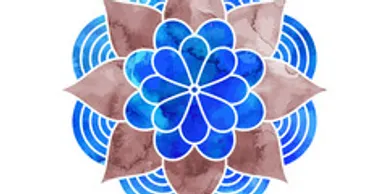Ayurveda Library

The Science of Immortality
Ayurveda is the oldest healing science. It originated in India more than 6,000 years ago. Ayurveda is also called the “Mother of All Healing.”
Emphasizing prevention, Ayurveda encourages health maintenance. According to its teachings, anyone can achieve and sustain health through proper thinking, diet, lifestyle, and herbs.
Read More
Tools for Balancing the Mind and Consciousness
Ayurveda offers essential tools to create balance in both the mind and consciousness, while also emphasizing the importance of understanding one’s unique constitution. By recognizing this, individuals can achieve better harmony and well-being.
Health as Order, Disease as Imbalance
In Ayurveda, health represents a state of order, whereas disease results from imbalance. Therefore, restoring balance is key to achieving optimal well-being and overall health.
Three Core Energies: Vata, Pitta, and Kapha
Ayurveda identifies three primary energies—Vata, Pitta, and Kapha—that govern the body’s biological functions. Understanding these energies is essential for achieving balance and is fundamental to Ayurvedic health.
Understanding Energy Interactions
The interaction between Vata, Pitta, and Kapha plays a crucial role in maintaining balance within the body. Therefore, understanding how these energies work together is essential for fully embracing and benefiting from Ayurveda’s healing practices.
Restoring Harmony and Health
Learning how these energies interact enables us to restore balance, harmony, and health, thereby promoting overall well-being through the principles of Ayurveda.

What are Ayurvedic teas?
Traditional Ayurvedic teas are made with a blend of herbs, roots, and spices to detoxify and purify the body and mind.
Ayurvedic teas aim to attain health, balance, and wellness. There are many types of teas in Ayurveda for different kinds of imbalances.
Read More
Ayurvedic Tea Ingredients
Our blends combine carefully selected ingredients and unique herbs in specific formulations to enhance relaxation, boost immunity, detoxify, and promote overall wellness.
Personalized Herbal Approach
Ayurveda takes a personalized approach by identifying the right combination of herbs based on an individual’s body and mental needs, rather than using a single herb for a specific imbalance.
Restoring Balance with Herbs
Ayurvedic blends help restore balance by delivering the healing intelligence of herbs where it is needed most. These teas support general well-being, but it’s important to note they are not intended to heal or cure diseases.
Consult Your Doctor
We encourage you to consult with your doctor before trying new products or if you have any questions about our Ayurvedic tea blends.Ayurveda takes a personalized approach by identifying the right combination of herbs based on an individual’s unique body and mental needs, rather than relying on a single herb for a specific imbalance.

The Doshas That Govern the Body
Three basic types of energies are recognized by Ayurveda as being present in everyone and everything– Vata, Pitta, and Kapha. These energies can be related to the basic biology of the body.
For example, Vata is the energy of movement in the body, Pitta is the energy of ….
Read More
Influence of Pitta and Kapha on the Body
Digestion and metabolism are primarily influenced by Pitta, while Kapha governs the body’s structure. Ayurveda acknowledges that everyone possesses qualities of Vata, Pitta, and Kapha, but typically one energy is dominant, one is secondary, and the third is less prominent.
Illness and Imbalance
In Ayurveda, illness is often caused by an excess or deficiency of Vata, Pitta, or Kapha. Additionally, the presence of toxins contributes to disease. Therefore, maintaining balance among mind, body, and consciousness is essential for health and order.
Understanding the Energies of Vata, Pitta, and Kapha
To restore harmony, it is vital to understand how Vata, Pitta, and Kapha work together to balance the body, mind, and consciousness. Moreover, Ayurveda teaches that the entire cosmos interacts through the energies of the five elements—Space, Air, Fire, Water, and Earth.
The Five Elements in Ayurvedic Philosophy
Vata, Pitta, and Kapha are combinations and alterations of these five elements. As such, they form the foundation of Ayurvedic philosophy, shaping every aspect of our health and well-being.

Vata Dosha
Vata is the energy associated with movement — made of Space and Air.
Herb Guide Download
*Click here to download this complete PDF file with the best herbs to pacify Vata dosha!
http://tzv.75a.myftpupload.com/wp-content/uploads/2025/01/Digestive-Vata-Balancing-Herbs.pdf
Vata Dosha governs breathing, heart pulsation, muscle movement, blinking, and tissue movement. When Vata is balanced, it enhances creativity and flexibility. However, when Vata becomes imbalanced, it leads to anxiety, nervousness, and fear.
Read More
Vata and Its Qualities
This Dosha is linked with anxiety, worry, and fear. In Ayurveda, Vata individuals are quick-minded and creative, but may struggle with memory retention. Mentally, they grasp concepts quickly but often forget them just as fast.
Vata Characteristics and Imbalance
People of this constitution are typically active, alert, and restless, but they can tire easily. When imbalanced, they may experience heightened anxiety and fear. Additionally, they often have irregular appetites and digestion.
Balancing Vata
To restore balance, Ayurveda recommends the following guidelines:
- Stay calm
- Avoid cold, frozen, or raw foods
- Stay away from extreme cold
- Eat warm foods and spices
- Maintain a consistent routine
- Get sufficient rest

Pitta Dosha
Pitta is in charge of the body’s metabolic system — made up of Fire and Water.
Herb Guide Download
*Click here to download this complete PDF file with the best herbs to pacify Pitta dosha!
http://tzv.75a.myftpupload.com/wp-content/uploads/2025/01/Digestive-Pitta-Balancing-Herbs.pdf
Pitta’s energy governs digestion, assimilation, nutrition, absorption, metabolism, and body temperature. When Pitta is balanced, it enhances reasoning and intelligence. However, when Pitta is imbalanced, it triggers anger, jealousy, and hatred.
Read More
Pitta and Its Characteristics
People with Pitta energy exhibit fiery qualities—hot, sharp, and penetrating. In Ayurveda, Pitta individuals possess warm bodies, sharp intellect, and strong mental clarity.
Pitta Characteristics and Imbalance
When imbalanced, Pitta types become irritable and short-tempered. Physically, they are usually of medium height and build, with an energetic metabolism and strong digestion. They enjoy hearty meals, especially hot spices and cold drinks.
Balancing Pitta
To restore balance, Ayurveda recommends:
- Avoid extreme heat and oil
- Limit exposure to steam
- Reduce daily salt intake
- Choose non-spicy foods
- Avoid exercise during hot parts of the day

Kapha Dosha
Kapha is in charge of the body’s structure – made up of Water and Earth.
Herb Guide Download
*Click here to download this complete PDF file with the best herbs to pacify Kapha dosha!
http://tzv.75a.myftpupload.com/wp-content/uploads/2025/01/Digestive-Kapha-Balancing-Herbs.pdf
Kapha lubricates our joints, maintains immunity, and moisturizes the body. When balanced, it fosters sweetness, calmness, forgiveness, and love. However, when Kapha is imbalanced, it leads to unhealthy attachments.
Read More
Kapha and Its Characteristics
Kapha individuals are known for their strength, endurance, and smooth, oily skin. They gain weight easily and have a slower metabolism. Physically, they have well-developed muscles, thick skin, and a calm nature, with excellent long-term memory.
Kapha Characteristics and Imbalance
When imbalanced, Kaphas may become greedy, envious, and possessive, often struggling with unhealthy attachments.
Balancing Kapha
To restore balance, Ayurveda recommends:
- Regular exercise
- Avoid heavy, dairy, fatty, and oily foods
- Stay active and vary your routine
- Eat light, dry foods
- Avoid iced drinks and napping
